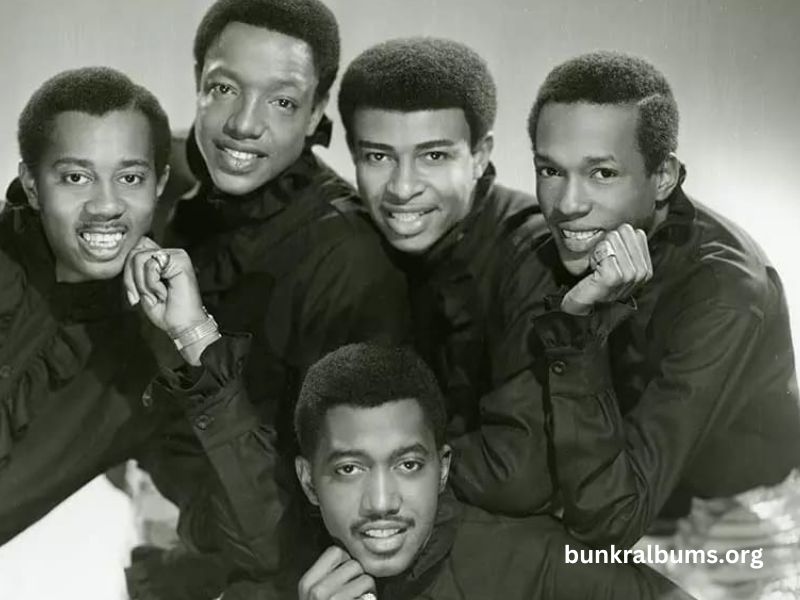Paul Williams, a founding member of the iconic Motown group The Temptations, remains one of the most influential figures in the history of soul and R&B music. His contributions to the success of the group have left an indelible mark on the music industry. Born in Birmingham, Alabama, on July 2, 1939, Paul Williams began his journey in music at a young age, later co-founding one of the most successful vocal groups in history. Despite his untimely death in 1973, Williams’ legacy lives on through the timeless music of The Temptations. In this article, we will explore the life, career, and contributions of Paul Williams to the music world, highlighting his role in shaping the sound and success of The Temptations.
Early Life and Formation of The Temptations
Paul Williams was born into a family that fostered his early interest in music. Growing up in Birmingham, he sang in local church choirs, and it was clear from a young age that he had an innate talent for performing. In the 1950s, Williams moved to Detroit, where he met future Temptations members Eddie Kendricks and Otis Williams (no relation). Together, they formed a group called The Primes, which was the precursor to The Temptations.
The group soon caught the attention of Motown Records, and under the guidance of music mogul Berry Gordy, they became The Temptations. The lineup that became famous included Otis Williams, Eddie Kendricks, Melvin Franklin, Elbridge “Al” Bryant, and Paul Williams. Together, they would go on to make history as one of Motown’s most successful acts.
Paul Williams’ Role in The Temptations
While every member of The Temptations brought something unique to the group, Paul Williams’ role was particularly significant. Known for his smooth baritone voice, Williams was often the lead vocalist on some of the group’s early hits. His vocals on tracks like “Don’t Look Back” and “I Want a Love I Can See” are standout performances that showcase his deep, soulful voice. These songs became iconic and helped establish The Temptations’ reputation as one of the leading vocal groups of their time.
In addition to his vocal talents, Paul Williams was also known for his dynamic stage presence. He served as the group’s original choreographer, creating many of the iconic dance moves that became a hallmark of The Temptations’ performances. His ability to engage the audience and command the stage made him a favorite among fans and contributed to the group’s widespread popularity.
Challenges and Struggles
Despite his success with The Temptations, Paul Williams faced personal struggles throughout his life. Like many artists during that era, the pressures of fame and constant touring took a toll on him. Williams suffered from health problems, including sickle cell anemia, which often left him in pain. Additionally, he battled alcoholism, which worsened as the years went by. These issues affected his ability to perform, and eventually, Williams began to distance himself from the group.
By the late 1960s, Paul Williams’ health had deteriorated to the point where he could no longer keep up with the demands of touring and performing. He was replaced by Richard Street, who filled in for him on stage while Williams continued to record in the studio. Despite this, Paul Williams remained an integral part of The Temptations, and his contributions continued to be felt in the group’s music.
Paul Williams’ Departure from The Temptations
In 1971, Paul Williams officially left The Temptations due to his ongoing health problems. His departure was a significant loss for the group, as he had been one of the original members and a key figure in their rise to fame. After leaving the group, Williams tried to pursue a solo career but struggled to regain the success he had experienced with The Temptations.
Despite his struggles, Paul Williams remained close to his former bandmates and continued to support them. However, his personal demons continued to haunt him, and on August 17, 1973, Williams was found dead in an alley in Detroit. His death was ruled a suicide, though some speculations and rumors have suggested otherwise. Regardless of the circumstances, his passing marked a tragic end to a brilliant career.
The Legacy of Paul Williams
Although Paul Williams’ life was cut short, his impact on music is undeniable. As one of the founding members of The Temptations, he helped shape the sound of Motown and the music industry as a whole. The group’s signature harmonies, intricate choreography, and timeless hits continue to influence generations of musicians and performers.
One of Williams’ most enduring contributions to The Temptations is his work on songs like “Don’t Look Back,” a track that has become synonymous with the group’s legacy. His voice, full of emotion and soul, captured the essence of what made The Temptations so special. Even today, fans continue to celebrate his contributions to the group’s success.
In addition to his musical achievements, Paul Williams is remembered for his professionalism and dedication to his craft. His commitment to perfecting the group’s performances and choreography helped set a standard for vocal groups that followed. The Temptations’ performances were not just about the music; they were a full entertainment experience, and much of that was due to Williams’ vision and talent.
The Influence of The Temptations and Motown
The success of The Temptations cannot be separated from the influence of Motown Records. As part of the Motown family, The Temptations had access to some of the best songwriters, producers, and musicians in the industry. Working with legends like Smokey Robinson and Norman Whitfield, the group produced some of the most iconic songs of the 1960s and 1970s, including “My Girl,” “Ain’t Too Proud to Beg,” and “Papa Was a Rollin’ Stone.”
Motown, often referred to as “Hitsville USA,” became the soundtrack of a generation, and The Temptations were one of the label’s flagship acts. The group’s blend of soulful harmonies, catchy melodies, and smooth choreography made them a favorite among fans and helped define the sound of Motown. Paul Williams played a key role in shaping this sound, and his contributions to the group’s success cannot be overstated.
Remembering Paul Williams Today
Today, Paul Williams is remembered as one of the pioneers of soul music. His contributions to The Temptations helped pave the way for countless artists who followed in the group’s footsteps. Despite his personal struggles, Williams’ legacy as a performer and musician remains intact. Fans of The Temptations continue to celebrate his life and work, and his music lives on through the group’s enduring popularity.
In recent years, Williams’ story has been revisited in documentaries and biographies, which have helped shed light on his life and contributions to music. His legacy is also preserved through the ongoing success of The Temptations, who continue to perform and tour, keeping the spirit of the group alive for new generations of fans.
Conclusion
Paul Williams’ role in the success of The Temptations is undeniable. As a founding member, his voice, choreography, and stage presence were instrumental in shaping the group’s sound and image. Despite facing personal struggles, Williams left behind a legacy that continues to influence the music industry today. His contributions to Motown and The Temptations have cemented his place in history as one of the greats of soul music. Through timeless hits and unforgettable performances, Paul Williams’ legacy as a pioneer of soul music lives on, ensuring that his memory will never be forgotten.







